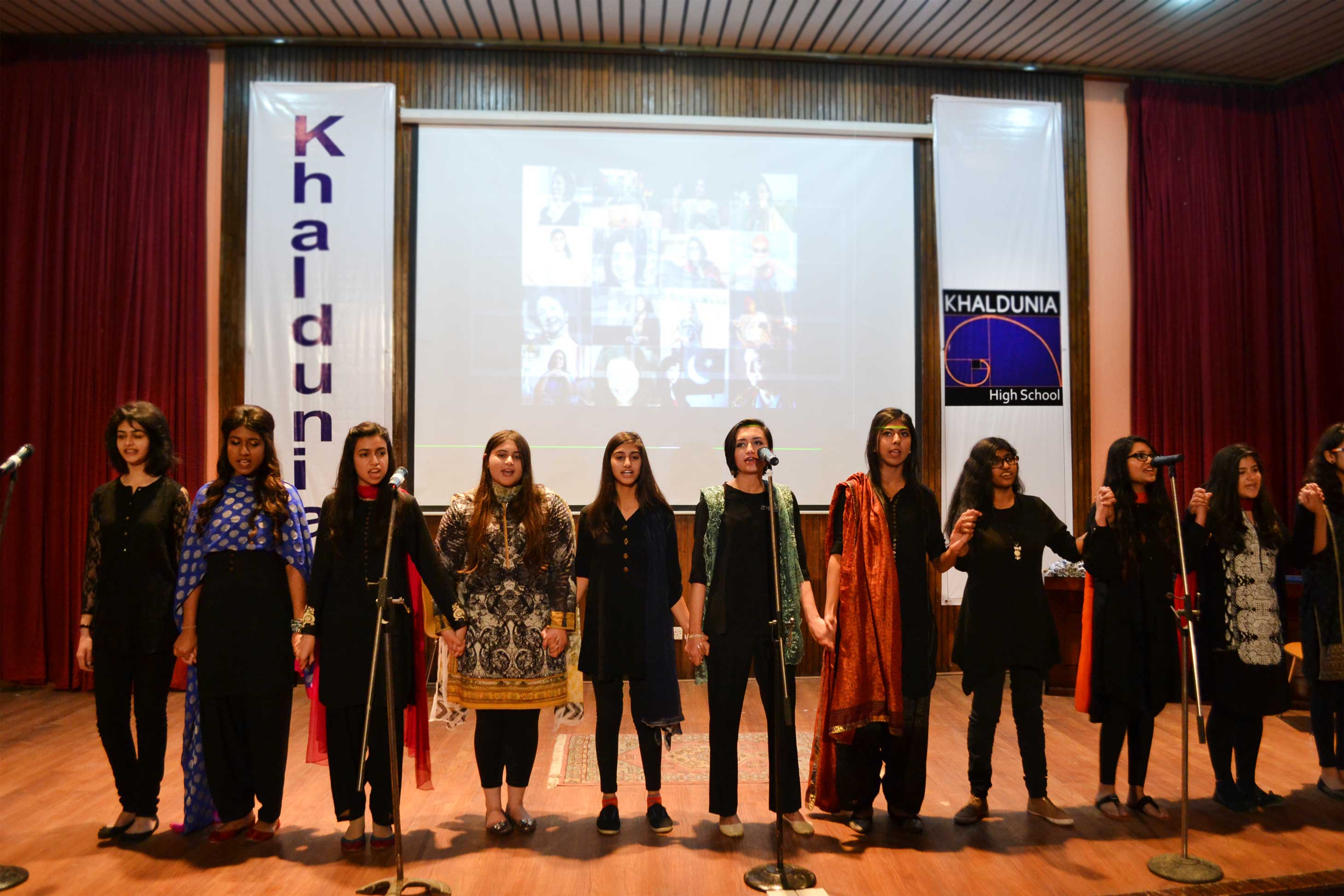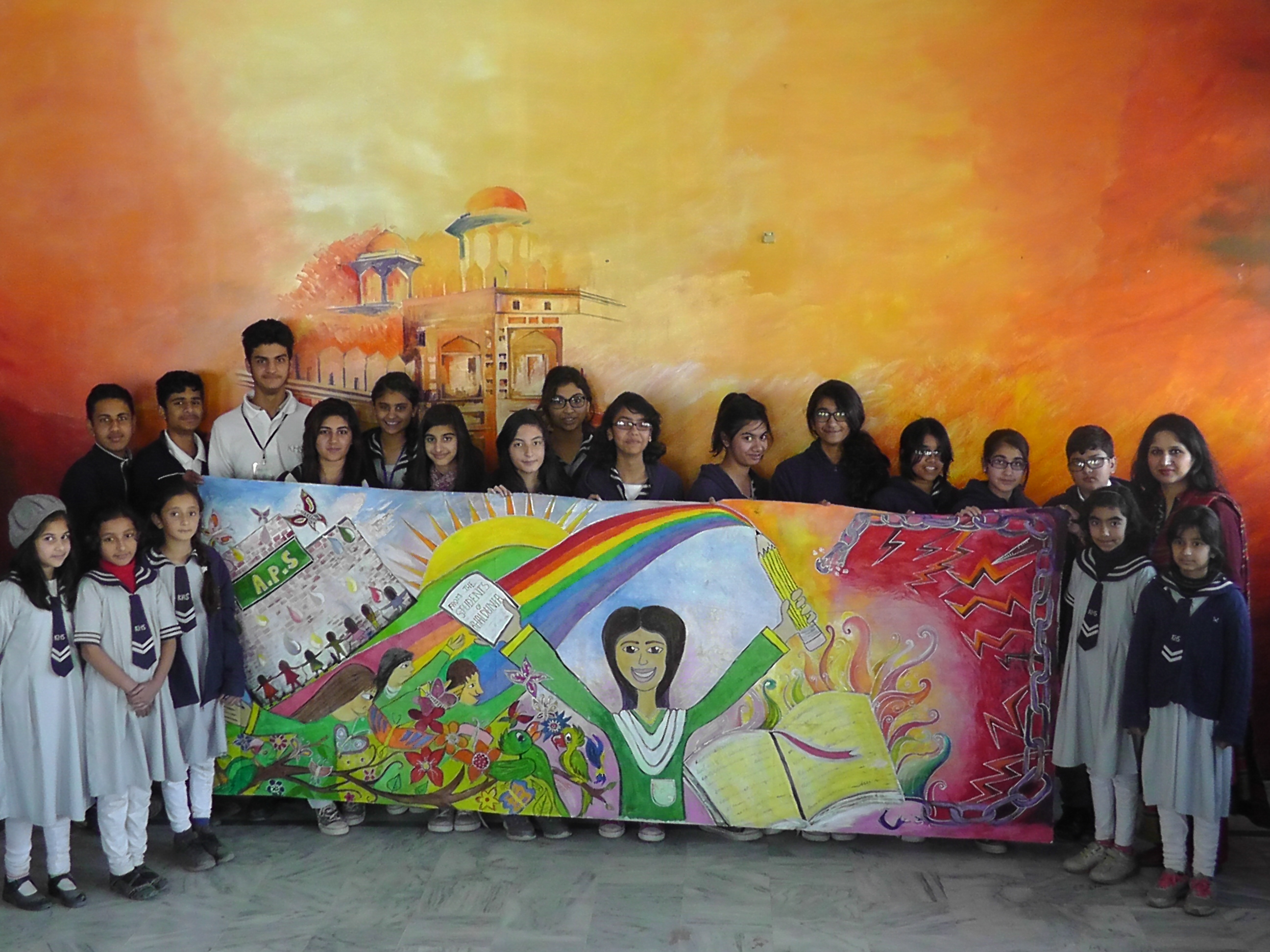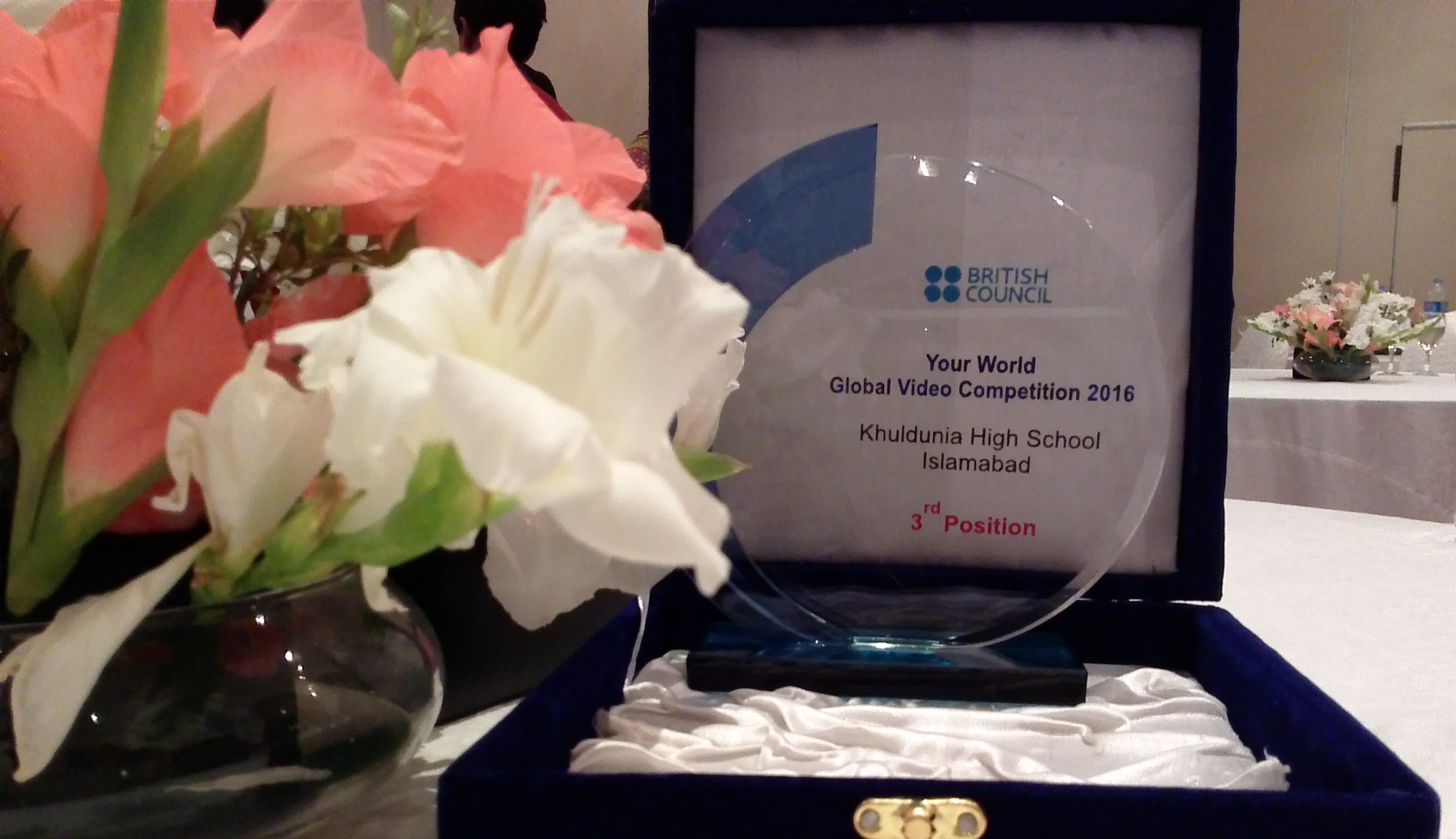Home / Extended curriculum
Extended curriculum: beyond the classroom
The school week embodies a full academic and non academic curriculum. To promote the concept of student governance, every year, pupils from the senior most classes are nominated and elected by the student body to the Student Council. A President, Vice-President, Editors of the Potpourri – the school yearbook – and Secretaries and Joint Secretaries of various clubs constitute this council.

Over time, students have opted to name these clubs:
- Abdus Salam Science Club,
- Sadequain Art Club,
- Zia Mohyuddin Drama Club,
- Jehangir Khan Sports Club,
- Nelson Mandela Debates Society
- Tansen Music Club.
Essentially run by the students themselves with staff guidance, the Council produces an annual magazine, holds debates, drama presentations, declamation contests, quizzes, poetry recitals, spelling bees, flower arrangement and food preparation competitions etc on a term wise basis.
Extended curriculum: Caring and sharing
Many traditions at Khaldunia have grown over the years. The annual hike in the Margallas is eagerly awaited as is the Bonfire night where the Houses compete to display their talent in a range of media – in recent years, we have had skits written by students, a video Mockumentary, singing and guitar playing etc.

But students are not only out to have fun – the spirit of service is highly encouraged. A funfair to raise funds for charity and raise awareness of the plight of the underprivileged is held annually. Khaldunia has donated funds raised from these events to the Al Shifa Eye Trust Hospital, the Edhi Foundation and the SOS villages, the Shaukat Khanum Trust, the Marie Adelaide Leprosy Centre and the Sindh Institute of Urology etc.
In the same spirit, Khaldunia’s students raised funds for the earthquake victims of 8/10 and volunteered at hospitals and tent villages to aid the wounded. The floods of 2010 and 2011 also had them flocking to raise funds and a concert “Rock for a Cause” was held in this regard.
Extended curriculum: Bringing the world to Khaldunia
Twice weekly assemblies are conducted by different classes on a rota basis to present news, class projects, skits, and to raise issues of importance for general discussion. We do not believe that school going children are too young to be exposed to the stirring issues of the day – thus our children are encouraged to question and debate a whole range of issues – be it the policies of the United States in Iraq and Palestine, or the urgent need to conserve water, or indeed the wisdom of nuclear proliferation. Indeed, some might quibble about how critically the students are taught to think and question!
To disseminate a wider range of opinion for debate and discussion, guest lecturers are invited to speak to the students who are encouraged to develop informed views about issues of national and international importance. Thus, students have had a first hand account of a survivor of the Hiroshima holocaust, participated in the International Women’s Day marches, held a rally against the war in Iraq, protested the destruction of the Bamiyan Buddhas, etc.

Some prominent guest lecturers include eminent scholars such as the late Dr. Eqbal Ahmad, Dr. Pervez Hoodbhoy, Dr. Zia Mian, Dr. A. H. Nayyar, Dr. Tariq Rahman, the international journalist and writer Laurence Lifschultz, economists such as Dr Shahrukh Rafi Khan, Dr Pervez Tahir, and the late Mr. Omar Asghar Khan, scientists such as Arvind Gupta, representatives of the Foreign Office such as Mr. Zamir Akram, journalists such as Mr. Zafar Abbas and Mr Kamran Shafi, Professor Akbar S Ahmad who holds the Ibn Khaldun Chair at American University in Washington DC..
The School also holds seminars and workshops for students and staff and the general public: Khaldunia and Oxfam jointly sponsored a seminar on education.
Outreach
Khaldunia has since its inception fostered contact with like minded groups nationally and internationally – we joined hands with Rozan, an NGO dedicated to improving the emotional health of the youth and women, to hold regular discussions and special one-to-one sessions with children who need emotional support. Other NGO’s we have worked with include ActionAid, Sachet, SPARC, Network, WAF, WWF etc and involved students in art projects, quizzes, speeches etc. all aimed at promoting healthy living, creating better traditions and helping spread awareness of issues. We have also worked with the traffic police in Islamabad, human and animal rights activists as well as environmental groups. Internationally, Khaldunia’s students participated in a series of video-conferences with students in the United States through America Abroad Media to help discuss the important international issues of the day and help disseminate a Pakistani point of view. Such exchanges not only sharpened students’ own knowledge but also taught them to express their own and listen to others’ points of view.
Another bridge was created between Khaldunia and the University of Canterbury in New Zealand – a series of workshops on conflict resolution between children using the technique of peer mediation.
